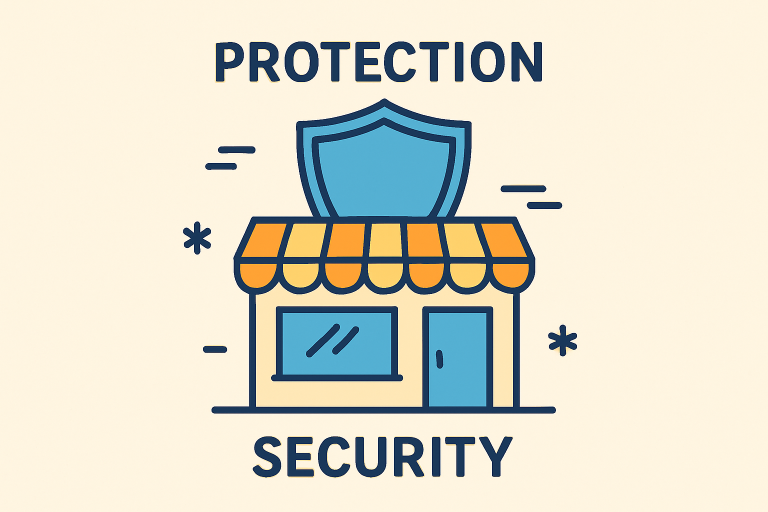Running a small business is both rewarding and challenging, often requiring owners to juggle numerous responsibilities every day. From managing employees and securing new clients to maintaining inventory and ensuring a seamless customer experience, the list never seems to end.
Amidst these essential daily operations, many entrepreneurs may overlook one crucial aspect of business management: protecting their livelihoods from unforeseen risks and financial disasters. Establishing strong risk management practices is a key component of any successful business strategy.
One such safeguard that stands out is general liability insurance for small businesses, which acts as a financial safety net against various claims and potential setbacks. Securing this protection early on allows small business owners to confidently focus on growth, innovation, and serving their community, rather than fearing an unexpected incident that could put their hard-earned success at risk.
Fully understanding the nuances of general liability insurance goes well beyond simply reducing risk; it offers peace of mind knowing your business is prepared to overcome challenges both big and small. Whether facing an unexpected customer injury, accidental property damage, or an advertising misstep that results in a lawsuit, general liability insurance ensures that your business is not left to bear significant financial burdens alone.
With the right coverage in place, you can shift your attention to running and expanding your business, secure in the knowledge that you have a solid foundation guarding against uncertainties.
What Is General Liability Insurance?
General liability insurance is a crucial policy that offers financial protection against common claims arising from routine business activities. It covers incidents that can occur at any business, including retail, service, and consultancy operations. Risks include customer slips, property damage, and legal disputes over misleading advertising.
General liability insurance covers legal defense costs, settlements, and medical payments if a company is sued for bodily injuries, property damage, or personal and advertising injury. These expenses can quickly add up and put severe financial strain on the business if not properly managed.
For small business owners, general liability coverage acts as a crucial line of defense against expenses that could disrupt or force the closure of their business. It ensures smooth operations even when unexpected events occur during interactions with clients, customers, partners, or the public.
Therefore, general liability coverage is the cornerstone of any robust risk management plan for growing businesses. Curious about how this coverage compares to other types of business insurance? Check out this comprehensive guide to business insurance for more details.
Why Small Businesses Need It
Small businesses often work within tight financial margins, operating with limited staff and resources and sometimes without the benefit of a dedicated legal or risk management department. This leaves very little leeway to manage the financial blow of an unexpected lawsuit or injury claim. In fact, just one sizable claim—whether justified or not—can be enough to deplete reserves, cripple cash flow, and threaten the ongoing viability of your company.
Therefore, General liability insurance is not just a practical safeguard; it’s necessary for anyone seeking to secure their businesses against unforeseen challenges. Without it, you risk being unprepared for costly incidents that could derail your plans and force extremely difficult decisions for the future of your business.
To illustrate, consider an example: If a customer trips over a loose rug in your shop or office and suffers a significant injury, you may be required to cover not just immediate medical expenses, but also lost wages, legal fees should the individual choose to sue, and even potential pain and suffering compensation.
Facing these expenses out-of-pocket could drain business assets, inhibit your ability to pay vendors, delay payroll, or even result in bankruptcy. With general liability insurance, however, these financial burdens are handled by your insurer, allowing you to continue serving your customers and growing your business. For more details on why this protection is vital to all businesses, read this helpful article on liability insurance basics.

Key Components of Coverage
General liability insurance is comprehensive, generally encompassing several major areas of protection, each tailored to address specific types of claims that might arise in the normal course of doing business:
- Bodily Injury: This aspect covers medical treatments, legal costs, and settlements if someone is injured on your business property or as a direct result of your business operations. It ensures you aren’t financially devastated by a lawsuit from a customer, client, or even a passerby injured on your premises or during your services.
- Property Damage: If your business operations inadvertently cause damage to someone else’s property—such as a contractor accidentally damaging a client’s furniture or an errant delivery causing harm to another commercial property—this coverage helps you with the costs of repair, restoration, or replacement, and shields you against related legal action.
- Personal and Advertising Injury: This important protection extends to cover claims based on offenses like defamation, libel, slander, wrongful eviction, copyright infringement, or deceptive advertising practices. In today’s interconnected, high-visibility marketplace, these kinds of claims are not limited to big corporations. Even small missteps online or in your marketing materials can result in substantial liability for your business.
It is crucial to recognize what your policy doesn’t cover: employee injuries generally fall under workers’ compensation insurance, while professional services or errors and omissions require a specifically tailored professional liability policy. Understanding the limits and exclusions of each form of coverage enables business owners to build a total risk management solution that fits their unique requirements and industry standards.
Choosing the Right Policy
To choose the right general liability insurance policy for your small business, assess your risk exposure based on your business’s nature, daily operations, and industry mandates. Consider public interaction, workspace layout, contractual obligations, and industry mandates. For instance, a brick-and-mortar retailer may need higher bodily injury limits, while a marketing firm should focus on robust coverage for advertising injury.
Consider consulting with a licensed insurance agent or experienced broker during selection. They can objectively assess gaps in your risk management strategy and recommend the best policies, limits, and enhancements for your business. Agents can also help compare price points, exclusions, and carrier reputations, ensuring comprehensive protection and affordability.
Review policy terms and costs, paying close attention to deductible amounts, policy limits, exclusions, conditions, and claim filing processes. The ultimate goal is to secure genuine value and protection, not just the lowest premium. Partnering with an agent empowers you to make informed decisions tailored to your budget and risk appetite.
Common Misconceptions
Many entrepreneurs operate under the mistaken belief that only high-risk businesses, such as contractors, manufacturers, or those dealing with hazardous materials, need general liability insurance. The reality is that every business—regardless of size or industry focus—is exposed to liability in some form. For instance, professional services providers, consultants, freelancers, and retail shops all face the risk of third-party claims.
Whether it’s a disgruntled client claiming financial loss or a visitor injured on your premises, the risk of claims is ever-present and can affect businesses across all industries. Online-based businesses are also at risk, especially for advertising and personal injury claims such as defamation or misrepresentation via website content or social media.
Another prevalent misconception is assuming that business structures like LLCs or corporations will fully insulate business owners from liability. While these structures offer some protection for personal assets, they do not shield your business assets from lawsuits or third-party claims. General liability insurance fills this critical gap, ensuring that business property, income, and reputation are protected. This distinction is essential for business longevity and for giving owners peace of mind as they focus on building their dreams.
Maintaining Your Policy
General liability insurance is crucial for businesses to protect against risks and liabilities. As your business expands, it may introduce new risks and liabilities, necessitating regular reviews with your insurance provider. These reviews help identify coverage gaps and ensure your policy aligns with your business’s evolution.
This may involve raising policy limits, adding riders for special risks, or broadening coverage as regulations or market conditions change. Staying updated on business trends, industry regulations, and emerging risks can help you proactively adjust your coverage.
An agile approach to insurance ensures long-term security and resilience, allowing businesses to adapt to external changes and internal growth. Understanding the core components, misconceptions, and best practices for ongoing review can set your business on a stable path for growth and success, despite future uncertainties. For personalized solutions, explore specialized offerings from general liability insurance providers for small businesses.
